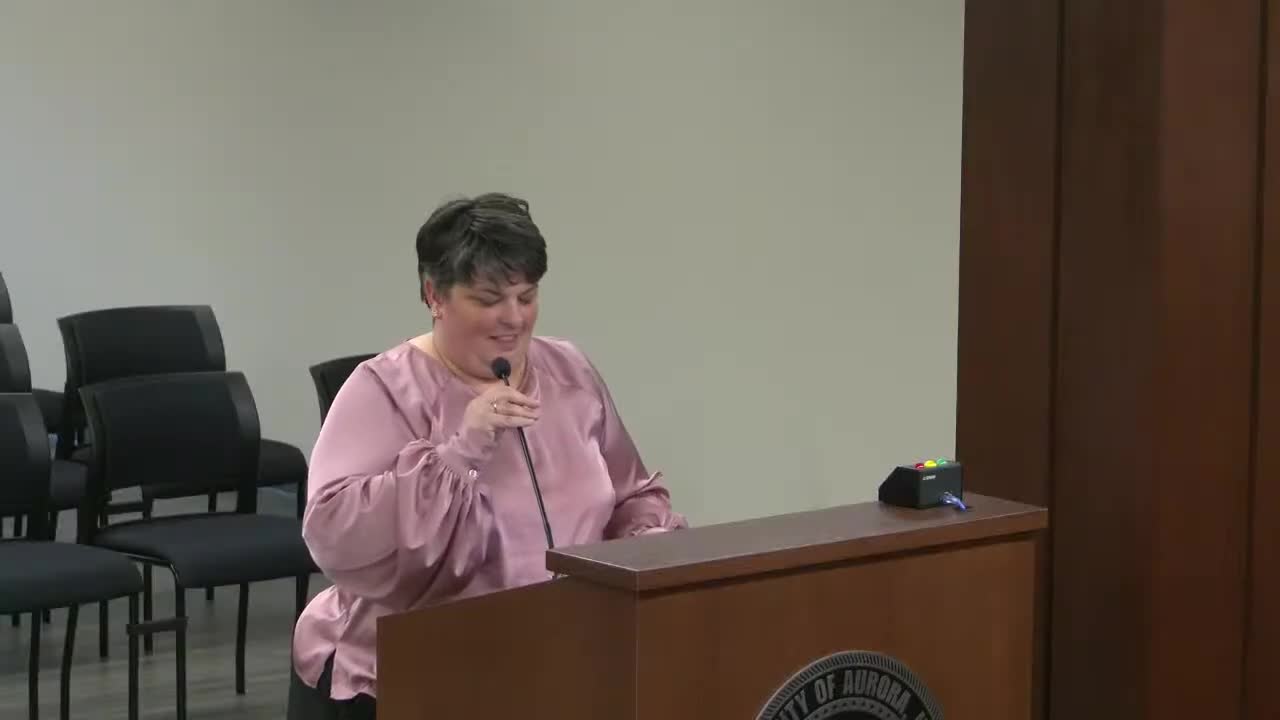Committee holds broad Aurora ethics omnibus ordinance for further review
Get AI-powered insights, summaries, and transcripts
Subscribe
Summary
City staff presented a comprehensive update to Aurora's ethics code covering disclosure of economic interests, campaign contribution limits, lobbyist registration, and use of city property. Committee members requested additional detail and alignment with state rules; the item was held for more work before referral to the Committee of the Whole.
Chairperson Edward J. Bugg opened discussion on an omnibus ethics reform presented by Shannon Cameron, chief of staff, who described the measure as a comprehensive package to "modernize our ethics code, align with state standards, and reinforce the city's commitment to transparency, accountability, and integrity in government." Cameron said the proposal would expand economic interest disclosures, add electronic filing deadlines, cap contributions from entities doing business with the city, require lobbyist registration, and restrict use of city property and the city seal for political or commercial activity.
The ordinance would broaden required disclosures to include spouses and minor children, outside employment that does business with the city, real estate interests within 1.5 miles of the city limits, and income over $2,500 from entities doing business with Aurora. Cameron said filings would move to an annual electronic filing by January 31 with penalties for late or false reports. The proposal also contains a $500 cap on contributions from any person or entity that "has or seeks a city contract," and language aggregating contributions from affiliates, subsidiaries, parent companies and reimbursed employees for purposes of that cap.
Committee members said they supported stronger disclosure but asked for clearer alignment with state law and more precise drafting. Dana Wysocki, Corporation Counsel, noted the $150 cash-contribution disclosure threshold was chosen to match the state requirement so filers would not need to track a different number. Several council members asked staff to provide a side-by-side comparison of the proposed city rules and current state law, and to clarify how the ordinance would treat: (a) early fundraising by prospective candidates before filing nominating papers or circulating petitions, (b) PAC and pass-through contributions, (c) in-kind or reimbursed campaign materials, and (d) definitions of household members and covered persons.
Council members also asked for clearer examples and practical guidance on the rule barring political activity on city property (for example, whether a campaign could rent a city facility under standard rental terms). Cameron and Corporation Counsel said staff would produce clarifying language and examples and return the measure for further review. The chair said the ordinance would be held for additional drafting rather than advanced immediately to the Committee of the Whole.
Taken together, the committee'level discussion focused on policy choices (contribution caps for entities doing business with Aurora) and operational details (timing of filings, covered-person definitions, treatment of affiliates and PACs). No formal vote was taken on the ordinance at this meeting; committee members directed staff to circulate additional materials and draft language for a future session.
Ending: The committee held the ethics omnibus ordinance for further work; staff was asked to provide a side-by-side comparison with state disclosure and campaign rules, clear examples for the city-property restrictions, and proposed language addressing PACs, affiliates, and pre-filing fundraising.
